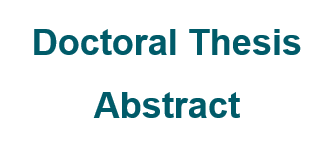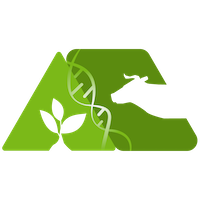Dependence of soybeans (Glycine Max Merril) to entomophile pollination and study of food resources of honey bees (Apis Mellifera L.) in contact with the crop
Doctoral thesis abstract
DOI:
https://doi.org/10.31285/AGRO.25.1523Keywords:
soybeans, pollinators, Apis mellifera, production, potassiumAbstract
South America suffered strong modifications during the last decade due to the increase in anthropic activities and the expansion of agricultural areas, particularly soybeans, interacting with traditional productions such as Beekeeping. The objective of this research was to know the dependence of two soybean varieties on entomophilic pollination by means of meshing and to reveal the diversity of insects in contact with the crop, especially determining the interaction of the honeybee with it. In addition, a sample of bees was carried out in different areas of the country to compare the diversity of species between areas with anthropic management during 2015–2016 and 2016–2017. Specimens were collected and classified according to taxonomic keys. The main results: 1- Forty-five species of bees or taxa belonging to the subfamilies Megachilinae (11), Apinae (22), Halictinae (7), Colletinae (2) and Andreninae (3) were distinguished in the southern region of Uruguay and 6 of them were in contact with the crop. 2- The diversity of bees was greater for the southern region, with traditional agriculture and pastures, than that of the low-lying coastal region where an increasing use of agricultural land took place during the last decade, especially soybeans. 3 - At least two species of native bees use soy as a plant resource to make their nests. 4- Honey bees use soybeans as a source of pollen and nectar, but the flowers on the edge of the crop provide pollen and nectar that compete with soybeans. 5- Soy shows a different degree of dependence on insects to form seeds related to the amount of exchangeable K in the soil. 6- The edges of the crop are important to provide food and shelter for pollinators. This study addresses the interaction between soybeans, native bees and honeybees, showing the points of contact between them. In addition, complementary data are obtained on biotic and nutrient agents that intervene in the flowering of Soybeans, helping to think about strategies for coexistence of items.
Downloads

Downloads
Published
How to Cite
Issue
Section
License
Copyright (c) 2021 Agrociencia Uruguay

This work is licensed under a Creative Commons Attribution 4.0 International License.
| Article metrics | |
|---|---|
| Abstract views | |
| Galley vies | |
| PDF Views | |
| HTML views | |
| Other views | |

















